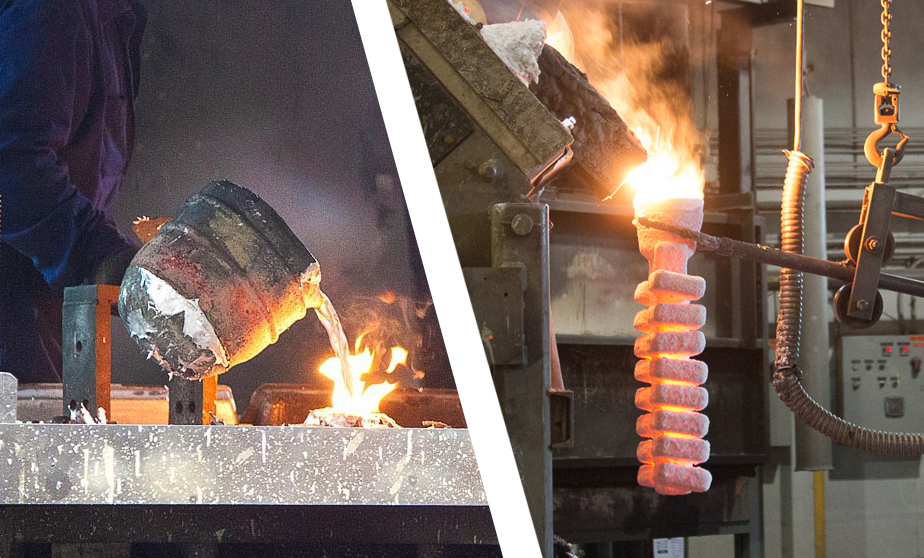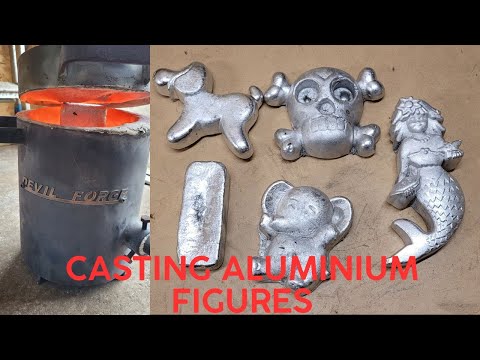7 Simple Techniques For Stahl Specialty Company
7 Simple Techniques For Stahl Specialty Company
Blog Article
9 Easy Facts About Stahl Specialty Company Explained
Table of ContentsThe Main Principles Of Stahl Specialty Company An Unbiased View of Stahl Specialty CompanyThe Only Guide to Stahl Specialty CompanyFacts About Stahl Specialty Company RevealedThe Definitive Guide to Stahl Specialty Company
The refined difference depends on the chemical material. Chemical Contrast of Cast Light weight aluminum Alloys Silicon advertises castability by decreasing the alloy's melting temperature and improving fluidity throughout spreading. It plays a critical function in permitting complex mold and mildews to be filled up precisely. Additionally, silicon adds to the alloy's toughness and put on resistance, making it valuable in applications where resilience is vital, such as auto parts and engine components.It additionally boosts the machinability of the alloy, making it easier to process right into finished products. In this method, iron contributes to the general workability of light weight aluminum alloys.
Manganese adds to the toughness of light weight aluminum alloys and boosts workability. It is typically used in wrought aluminum items like sheets, extrusions, and profiles. The visibility of manganese help in the alloy's formability and resistance to splitting during fabrication procedures. Magnesium is a light-weight component that offers toughness and influence resistance to light weight aluminum alloys.
It allows the manufacturing of lightweight elements with superb mechanical buildings. Zinc boosts the castability of aluminum alloys and assists regulate the solidification procedure throughout casting. It enhances the alloy's toughness and firmness. It is often found in applications where complex shapes and great information are necessary, such as decorative spreadings and specific auto components.
The Best Strategy To Use For Stahl Specialty Company
Because aluminum-silicon alloys have good spreading residential or commercial properties, high gas properties, straightforward processes, and outstanding rust resistance, aluminum-silicon alloys are most generally utilized in the die-casting market in your home and abroad. At the same time, aluminum-silicon alloys are also relatively very early and extensively acknowledged alloys developed and utilized in die-casting. After constant research and renovation, a lot of the current international mainstream aluminum-silicon alloys have been wrapped up and are nothing even more than A356, A360, A380, ADC12, B390, and A413.
The primary thermal conductivity, tensile stamina, yield strength, and prolongation differ. Amongst the above alloys, A356 has the highest thermal conductivity, and A380 and ADC12 have the least expensive.

The 30-Second Trick For Stahl Specialty Company
In precision spreading, 6063 is appropriate for applications where elaborate geometries and premium surface area finishes are critical. Examples consist of telecommunication rooms, where the alloy's exceptional formability permits for streamlined and cosmetically pleasing designs while preserving structural honesty. In the Illumination Solutions sector, precision-cast 6063 elements develop elegant and effective lights fixtures that require elaborate forms and good thermal performance.
(https://franceshoward64061.wixsite.com/stahl-specialty-comp/post/finding-the-best-foundry-near-me-why-stahl-specialty-company-stands-out)
The A360 exhibits premium elongation, making it ideal for complex and thin-walled parts. In precision spreading applications, A360 is well-suited for markets such as Customer Electronics, Telecommunication, and Power Tools.

In precision casting, light weight aluminum 413 radiates in the Consumer Electronics and Power Tools sectors. This alloy's superior corrosion resistance makes it an outstanding option for outdoor applications, making sure resilient, long lasting products in the stated sectors.
The Buzz on Stahl Specialty Company
Once you have made a decision that the aluminum die casting procedure appropriates for your project, an important following step is picking one of the most suitable alloy. The light weight aluminum alloy you pick will significantly impact both the casting process and the residential properties of the end product. As a result of this, you need to make your decision thoroughly and take an educated method.
Figuring out the most appropriate light weight aluminum alloy for your application will certainly suggest weighing a vast selection of attributes. The very first group addresses alloy qualities that influence the manufacturing process.
The alloy you pick for die spreading directly impacts numerous elements of the spreading procedure, like exactly how simple the alloy is to deal with and if it is you could try these out susceptible to casting problems. Hot splitting, also called solidification splitting, is a common die casting issue for light weight aluminum alloys that can lead to internal or surface-level tears or fractures.
Stahl Specialty Company for Beginners
Certain light weight aluminum alloys are extra susceptible to warm fracturing than others, and your selection should consider this. An additional usual defect located in the die spreading of aluminum is pass away soldering, which is when the cast stays with the die walls and makes ejection difficult. It can damage both the actors and the die, so you should look for alloys with high anti-soldering residential or commercial properties.
Deterioration resistance, which is already a noteworthy attribute of aluminum, can differ significantly from alloy to alloy and is a crucial particular to consider depending on the ecological problems your item will be exposed to. Put on resistance is an additional home commonly sought in light weight aluminum products and can separate some alloys.
Report this page